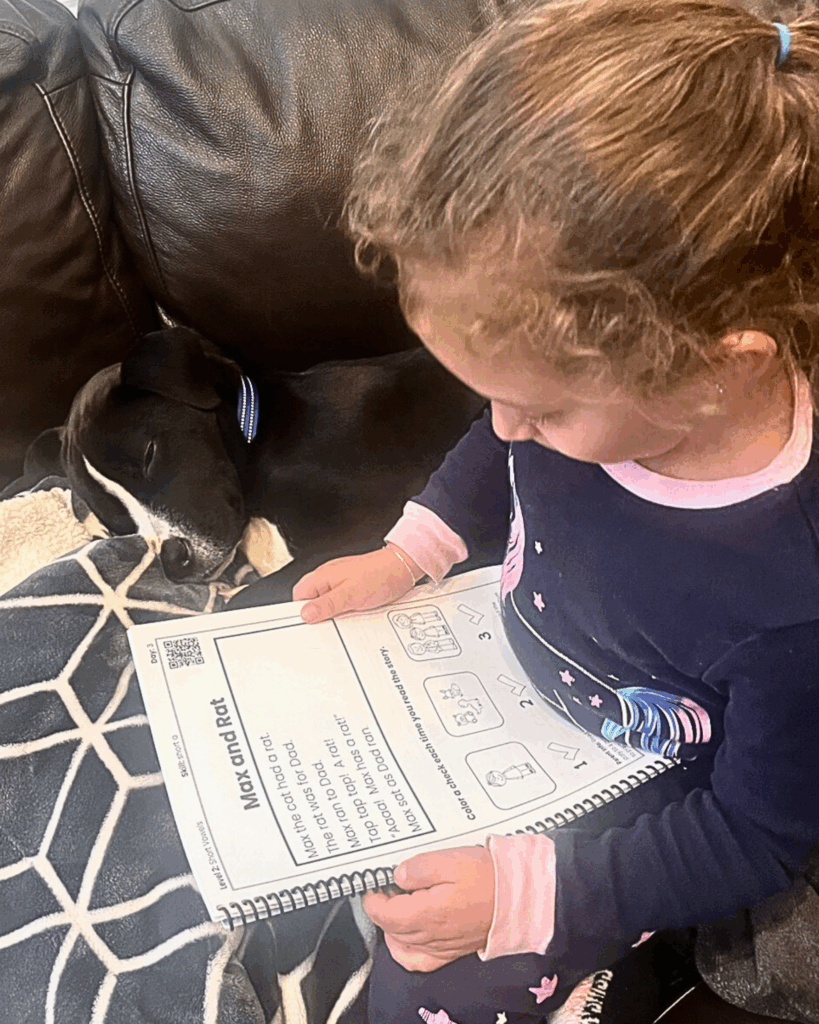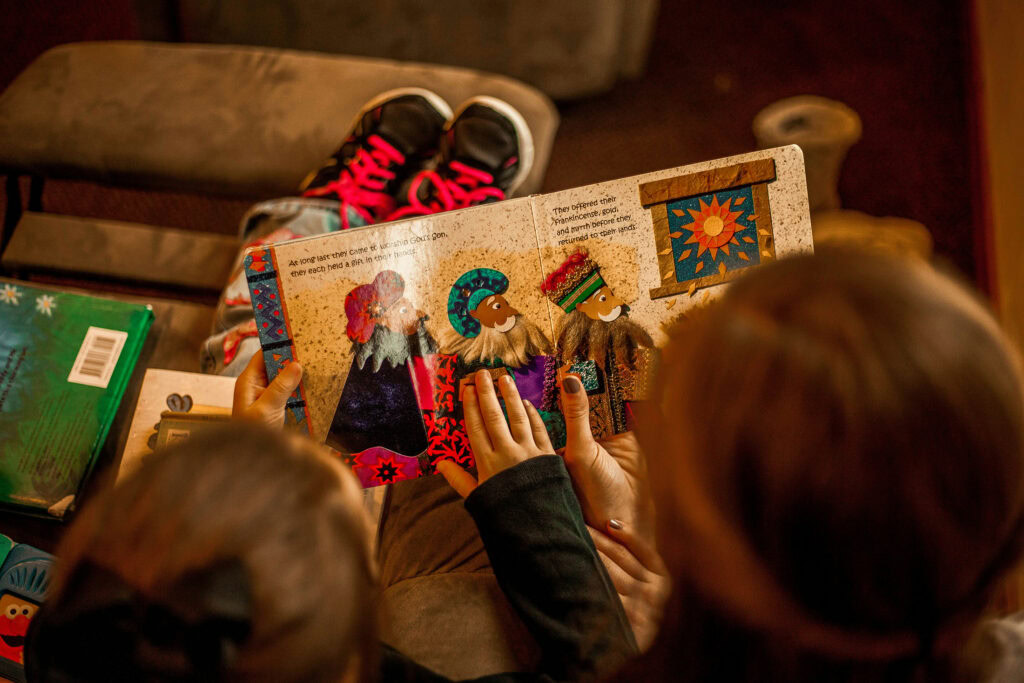If you’re trying to support your child’s reading at home, you’ve likely come across terms like “leveled readers” and “decodable books.” You might even be wondering:
What’s the difference? Which one is better? And when should my child be using them?
These are smart questions! Understanding the answers can make a big difference in your child’s reading journey.
So today, I’m breaking it all down:
✅ What decodable readers are (and how they’re different from leveled readers)
✅ When to use decodables and when to move on
✅ How decodables help your child become a confident, independent reader
What Is a Decodable Book?
A decodable reader is a special type of early reading book that uses only the phonics skills and high-frequency words your child has already been explicitly taught.

For example,
If your child has been learning short vowel sounds, such as “a” in “cat,” the decodable text will include words that match that pattern, as well as patterns they were previously taught, along with some high-frequency words. It’s designed to let your child sound out (or decode) the words on the page using their new skills.
These texts don’t rely on pictures or guessing. The goal is to build accuracy and confidence with reading real words.
Why Are Decodable Books So Important?
According to the Science of Reading, children become strong readers when they can connect sounds to letters and apply those skills in real reading situations. Decodable texts allow students to apply the phonics lessons to their independent reading. We know that this application is how new learning sticks!
Decodable Readers help children:
✔️ Practice what they’ve been taught
✔️ Build word recognition and fluency
✔️ Feel successful, which boosts their motivation and builds a love for reading.
How Are Decodable Books Different from Leveled Readers?
Many parents are familiar with leveled readers. These are the early reader books with patterned sentences, simple vocabulary, and lots of picture clues.
You might recognize lines like:
I see the cat. I see the dog. I see the cow.

These books are written to be predictable, and while they can be enjoyable, they aren’t based on what your child has been taught. In fact, they often encourage children to guess words based on pictures or context. These strategies we now know can actually slow down a child’s reading progress.
Here’s a quick comparison:
| Decodable Books | Leveled Readers |
| Use only taught phonics patterns | Use many untaught words |
| Focus on accurate decoding | Focus on sentence patterns & repetition |
| Help build word reading skills | Often encourage picture or context guessing |
| Support phonics instruction | Support oral language and comprehension |
That doesn’t mean leveled readers are bad! They can be great tools for reading aloud, vocabulary building, and discussions. However, for early readers who are still learning to sound out words, decodable texts are essential.
When Should My Child Use Decodable Books?
The best time to use a decodable book is right after your child learns a new phonics pattern.
For example:
If your child just learned how to read words with short a, give them a decodable story that includes words like cat, hat, and map. This gives them a chance to apply their new skill in a real reading situation immediately.
When Can My Child Move On from Decodable Books?
Eventually, your child will grow out of decodables, and that’s a good thing! It means they’re ready for more complex text.
But don’t rush it. Children should stick with decodable books until they can confidently:
✔️ Read short vowel words with blends and digraphs (like slip or chop)
✔️ Decode two-syllable words (like sunset or picnic)
✔️ Read words with silent e or r-controlled vowels (like bike or bird)
Most children are ready to transition to leveled books around the end of first grade or the beginning of second grade, but it depends on their skill level, not just their age or grade.
Should I Toss the Leveled Books?
No! Leveled books still have a place, just not as the main tool for teaching early reading.
Instead, use them to:
📖 Read aloud and talk about the story
🗣️ Build vocabulary and background knowledge
🎯 Practice comprehension strategies like predicting, retelling, or asking questions
When decodable books and leveled books are used together, they can be a powerful combination!
Want an easy way to get started with decodable books at home?
We’ve created a FREE set of decodable books just for families like yours!
This resource includes a simple, step-by-step routine to help you confidently support your child’s reading, as well as one printable decodable book from each of our four Sure Start Reading levels. You can choose full color or black and white versions (perfect for coloring together!).
👉 Just drop your email below, and your free books will be delivered straight to your inbox.